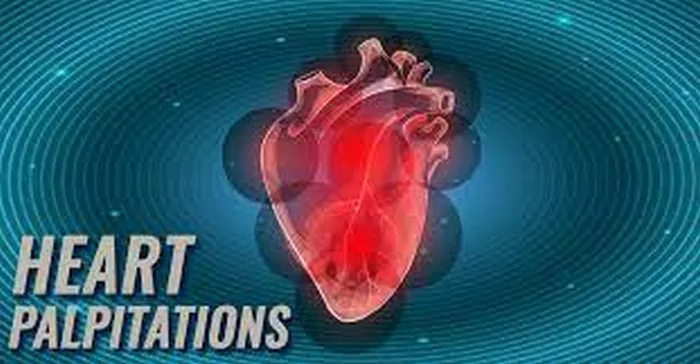Palpitations, the sensation of an irregular or rapid heartbeat, can be alarming when they occur suddenly and unexpectedly. While occasional palpitations are usually harmless, they can sometimes signal an underlying health issue that requires attention. In this article, we will delve into the various causes of sudden palpitations, how they are diagnosed, and strategies for managing them effectively.
Understanding Palpitations
Palpitations are commonly described as a fluttering, pounding, or racing sensation in the chest. They can occur at rest or during physical activity and may be accompanied by other symptoms such as dizziness, shortness of breath, or chest pain. While palpitations can be a normal response to emotions like anxiety or excitement, frequent or persistent episodes should be evaluated by a healthcare professional.
Causes of Sudden Palpitations
1. Stress and Anxiety: Emotional stress and anxiety are common triggers for palpitations. The body’s response to stress hormones can lead to increased heart rate and palpitations.
2. Caffeine and Stimulants: Consuming excessive amounts of caffeine or other stimulants like nicotine can cause palpitations. These substances can stimulate the heart and lead to irregular heartbeats.
3. Medications: Some medications, such as asthma inhalers, decongestants, and certain antidepressants, can trigger palpitations as a side effect. It is essential to discuss any medication-related concerns with a healthcare provider.
4. Electrolyte Imbalance: An imbalance in electrolytes such as potassium, magnesium, or calcium can disrupt the normal electrical activity of the heart, leading to palpitations.
5. Heart Conditions: Underlying heart conditions like arrhythmias, atrial fibrillation, or heart valve disorders can cause palpitations. These conditions may require specialized medical evaluation and treatment.
6. Thyroid Disorders: Thyroid disorders, including hyperthyroidism (overactive thyroid) or thyroid nodules, can affect heart function and contribute to palpitations.
7. Caffeine and Stimulants: Consuming excessive amounts of caffeine or other stimulants like nicotine can cause palpitations. These substances can stimulate the heart and lead to irregular heartbeats.
8. Anemia: Low levels of red blood cells (anemia) can result in reduced oxygen delivery to tissues, including the heart, leading to palpitations and other symptoms like fatigue and weakness.
Diagnosis and Evaluation
When evaluating sudden palpitations, healthcare providers may perform a thorough medical history review, physical examination, and diagnostic tests to identify the underlying cause. These tests may include:
1. Electrocardiogram (ECG): A standard ECG records the electrical activity of the heart and can detect abnormalities in heart rhythm.
2. Holter Monitor: A portable device worn for 24 to 48 hours to continuously monitor heart rhythm and detect intermittent palpitations.
3. Blood Tests: Blood tests may be conducted to assess electrolyte levels, thyroid function, and markers of heart damage.
4. Echocardiogram: An echocardiogram uses ultrasound waves to create images of the heart’s structure and function, helping to evaluate heart valve function and overall cardiac health.
Management Strategies
The management of sudden palpitations depends on the underlying cause and severity of symptoms. Here are some general strategies that may be recommended:
1. Lifestyle Modifications: Avoiding triggers such as caffeine, nicotine, and stressful situations can help reduce the frequency of palpitations.
2. Stress Management: Techniques such as deep breathing, meditation, yoga, and regular exercise can help manage stress and anxiety-related palpitations.
3. Medication Adjustment: If palpitations are related to medication side effects, healthcare providers may adjust or change medications to alleviate symptoms.
4. Treatment of Underlying Conditions: Managing underlying medical conditions like thyroid disorders, electrolyte imbalances, or heart rhythm abnormalities is crucial for controlling palpitations.
5. Cardiac Monitoring: In cases where palpitations are frequent or persistent, continuous cardiac monitoring or medication to regulate heart rhythm may be necessary.
6. Healthy Lifestyle Choices: Maintaining a balanced diet, staying hydrated, getting regular exercise, and avoiding excessive alcohol consumption can support heart health and reduce palpitation episodes.
When to Seek Medical Attention
While occasional palpitations may not be cause for concern, certain signs and symptoms warrant prompt medical attention:
- Palpitations accompanied by chest pain, dizziness, fainting, or shortness of breath
- Palpitations that occur during physical activity or at rest for an extended period
- Palpitations in individuals with a history of heart disease, high blood pressure, or diabetes
- Palpitations that interfere with daily activities or significantly impact quality of life
It’s essential to consult a healthcare provider if you experience any concerning symptoms or havequestions about managing palpitations effectively.
Conclusion
Sudden palpitations can be distressing, but they are often manageable with the right approach. By understanding the potential causes, seeking appropriate medical evaluation, and implementing lifestyle modifications and treatment strategies as needed, individuals can effectively manage palpitations and maintain heart health. Regular communication with healthcare providers and adherence to recommended treatment plans play a crucial role in addressing palpitation concerns and promoting overall well-being.

